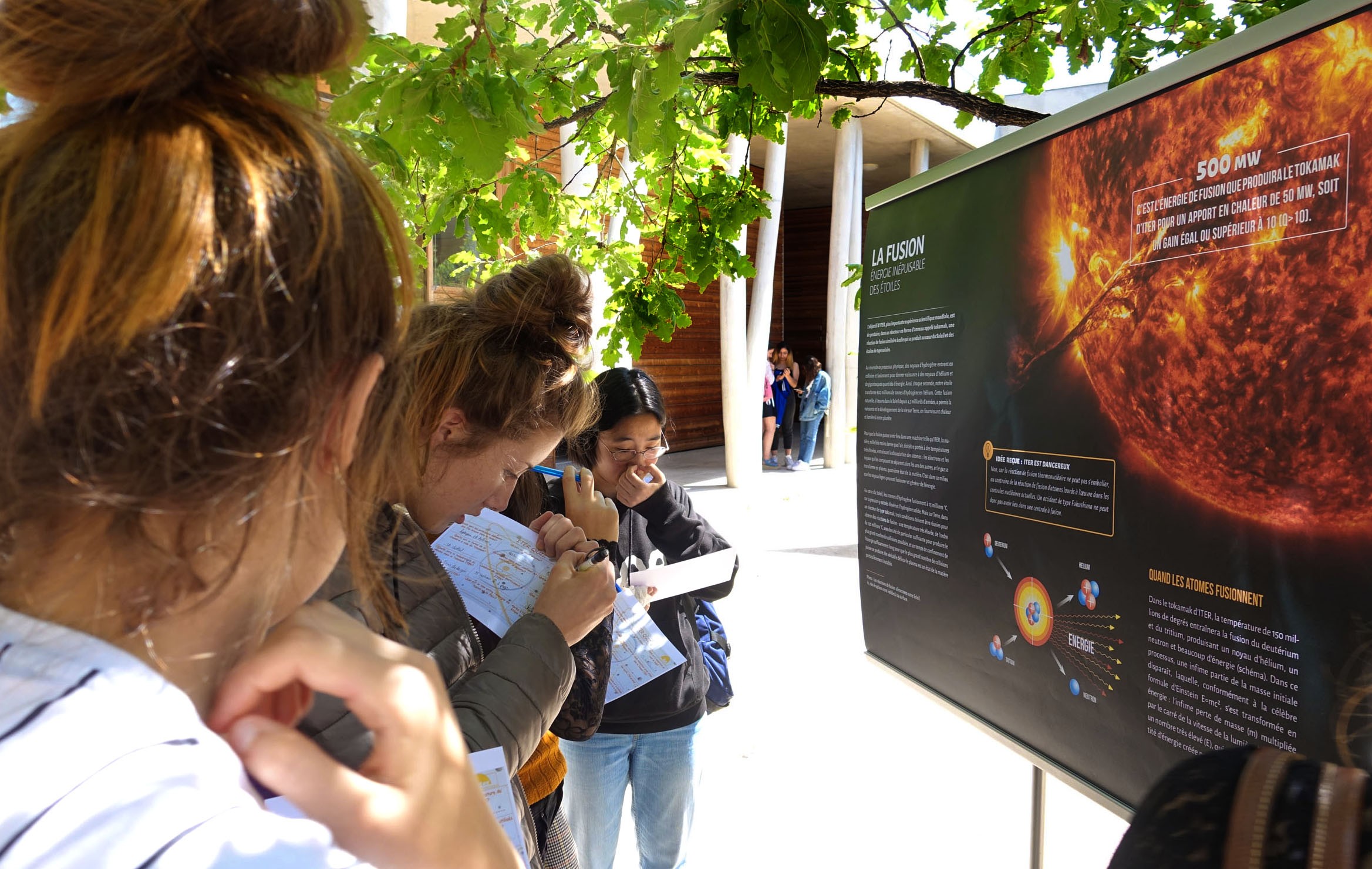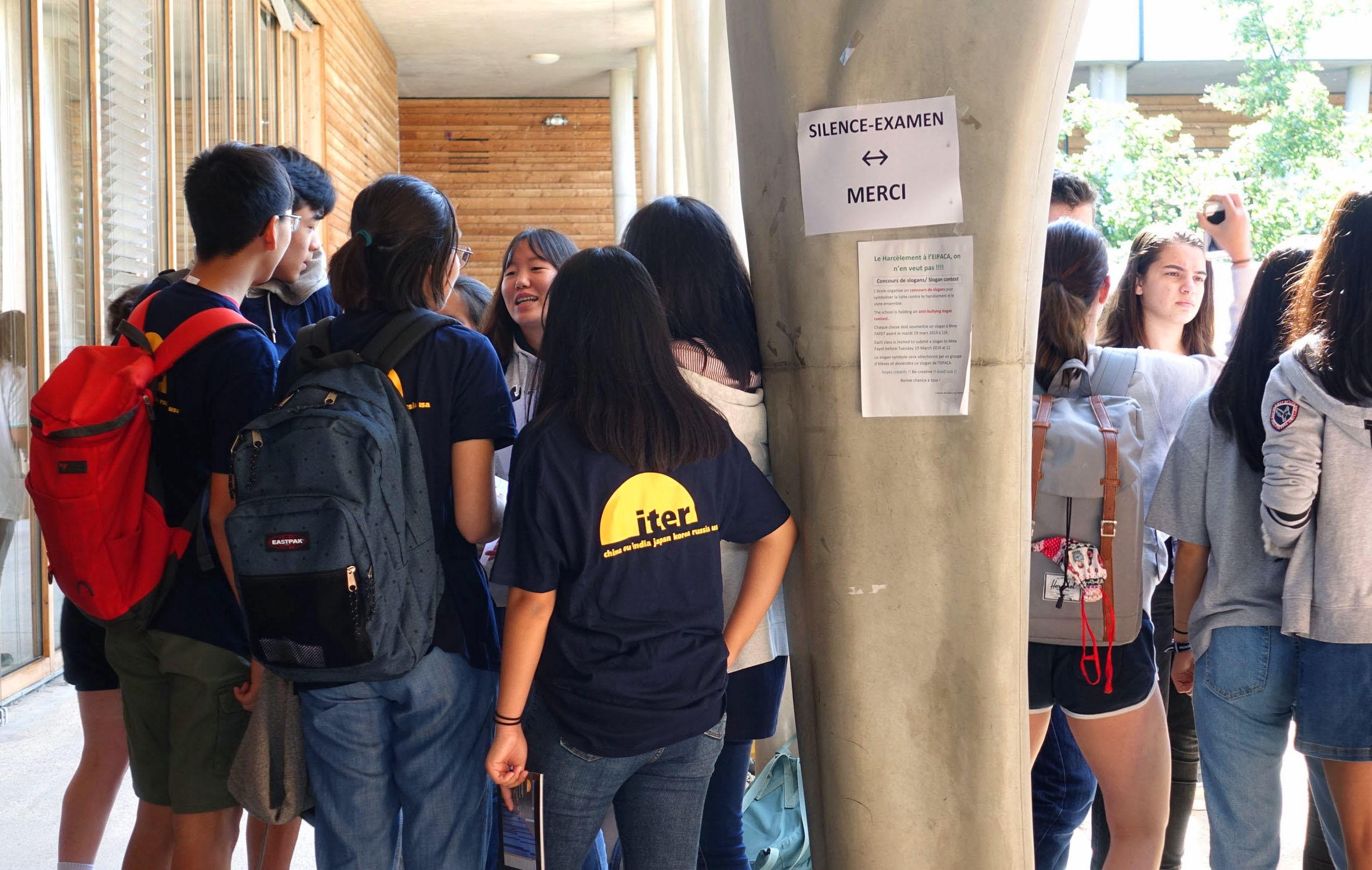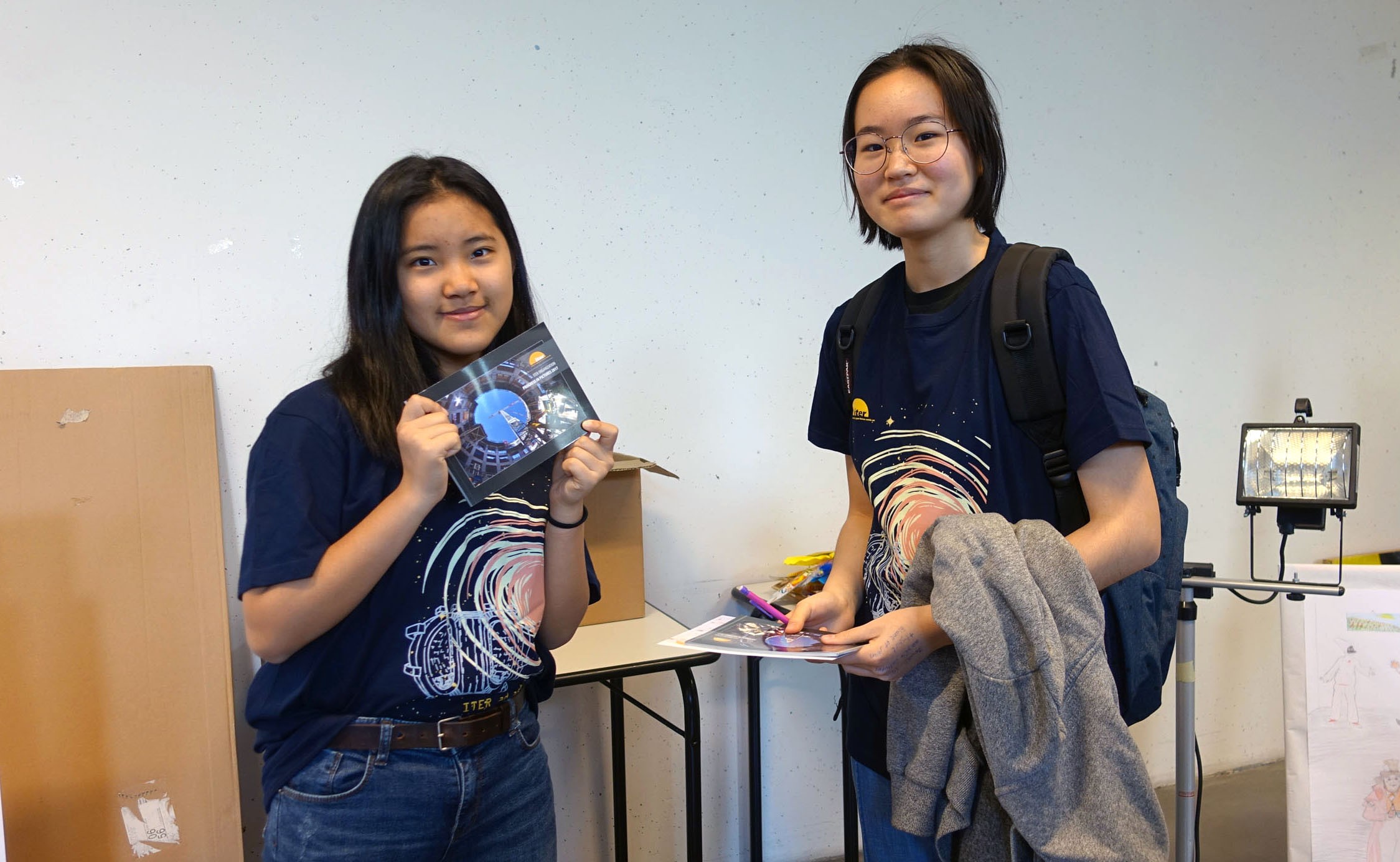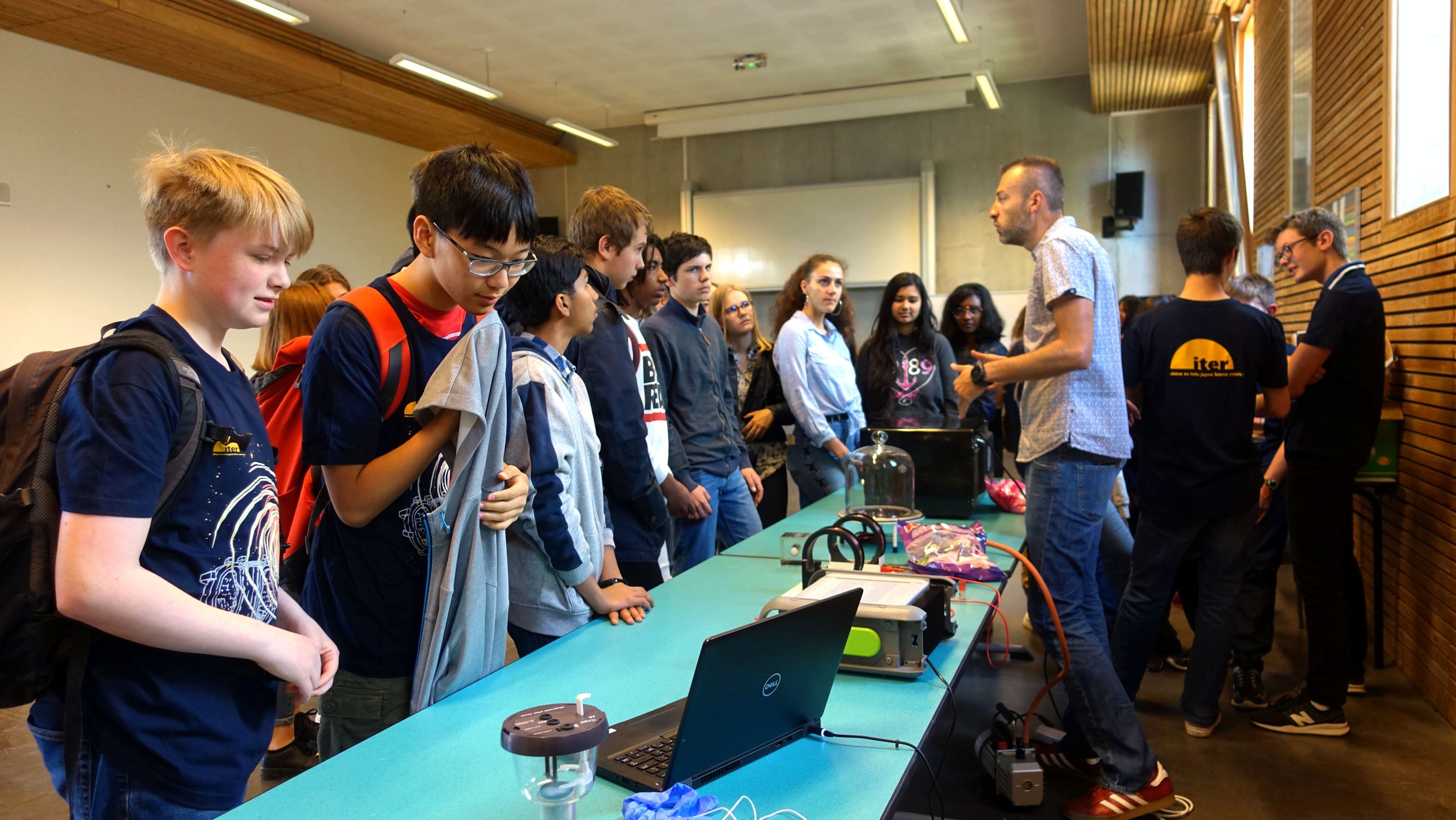The objective from the beginning has been to provide a bilingual education—in French plus one of the ITER languages. Currently, six language sections are offered: Chinese, English, German, Italian, Japanese and Spanish. Furthermore, from junior high school on, English speakers can choose to join the European Section where the courses are taught 80 percent in English.
From 130 students in 2007, the school has grown to 770 today (an average of 59 percent are from ITER families). After exponential growth in the early years, enrolment is now expanding at about 5 percent annually.
The "ITER school" was hosted at first by a high school in the city of Manosque, until a dedicated site could be built thanks to an investment of EUR 55 million from the Regional Council of Provence-Alpes-Côte d'Azur (PACA).
From 20 to 24 May, five days of celebratory events took place to celebrate 10 years in the school's permanent location.
"We are proud to be a strong and nurturing school for children from thirty countries who study in seven different languages," said Laure Béjannin, current director of the EIPACA International School. "Our commitment to the future of the school is complete. With the support of ITER and of the French Ministry of Education, we will no doubt lead our 770 students today—and our students in the future—to great achievements."
Learn more about the EIPACA International School in this presentation, or by consulting the website.









